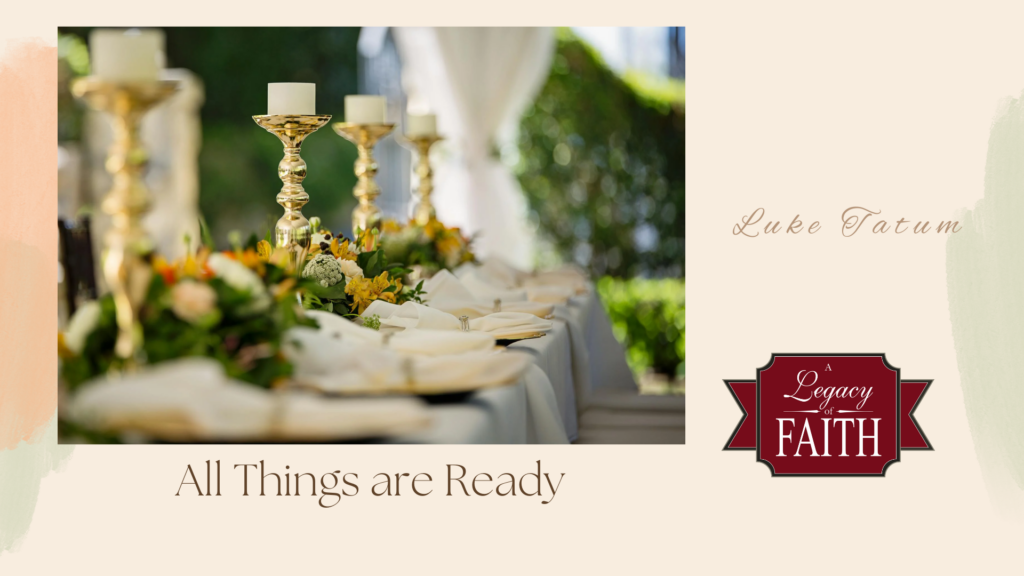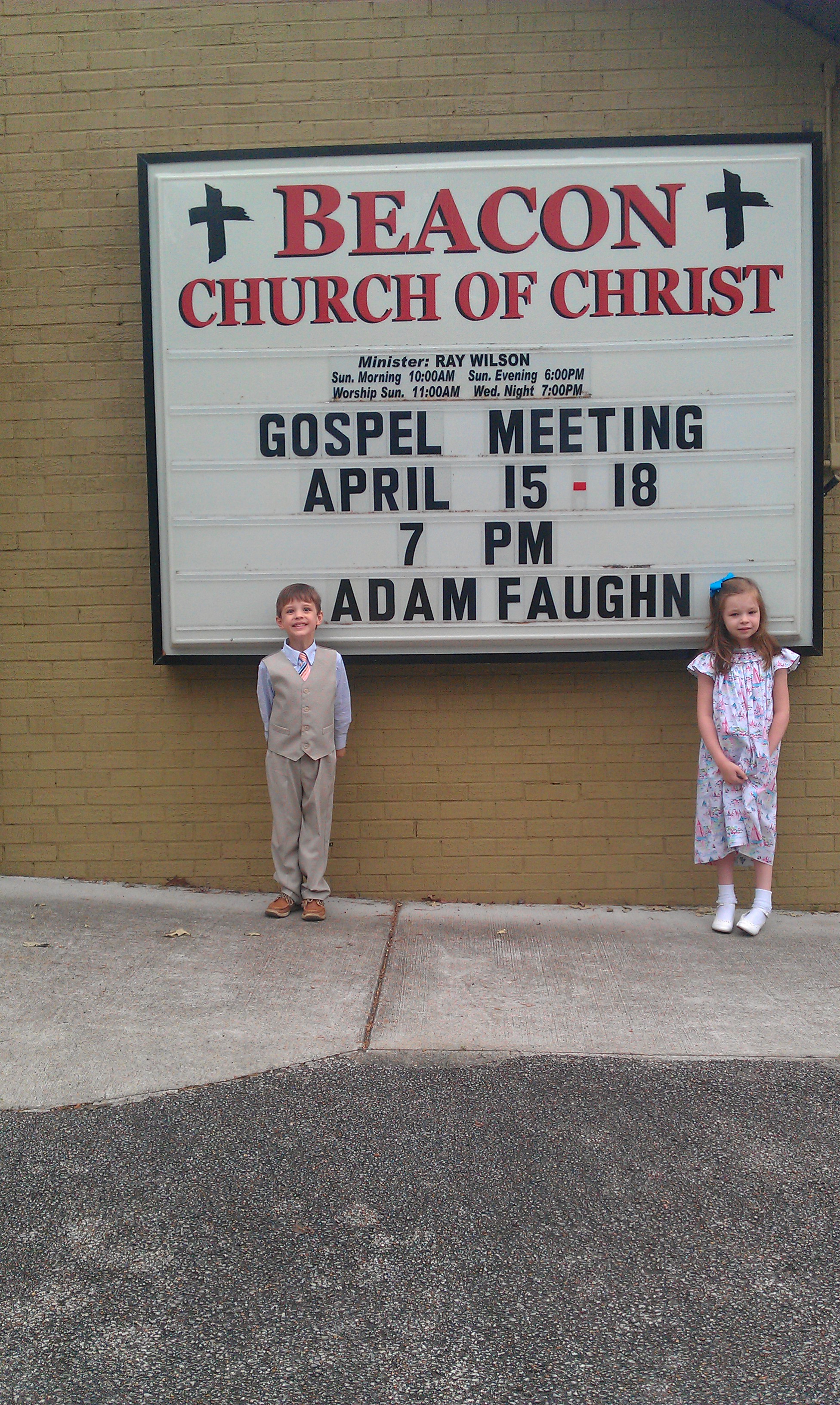All Things are Ready
[The following was written over a year ago now and has been revised only slightly. I know I’m the author, but in my estimation, it is just as necessary today as it was at the first, at least for me.]
It’s been a long time since I read the Bible and was genuinely afraid. It happened today. In Luke 14, Jesus was at a dinner party with the Pharisees. To careful readers of Luke’s Gospel, this should come as a bit of a shock; the narrative all the way back into Luke 11 has been marked by hostility towards Jesus on the part of the Pharisees and stern but truthful correction towards the Pharisees on the part of Jesus. To say that this meeting was tense would be an understatement, especially since early in the Sabbath-day encounter Jesus heals a man in attendance (who may or may not have been planted there by the Pharisees in an attempt to catch Jesus unprepared). This is followed by a parable about a feast and an additional lesson in “dinner etiquette” intended to teach the Pharisees something about the value of humility, first as the invited and then as the invitee. Regardless of which role one takes, those who enter the feast in humility will be exalted, and those who enter as the exalted (or as those expecting to be exalted) will be humbled.
The Pharisees do not take this well, either, as evidenced by verse 15 (NASB): “When one of those who were reclining at the table with Him heard this, he said to Him, “’Blessed is everyone who will eat bread in the kingdom of God!’” Talk about dodging the issue! Jesus claims that those who take the humble position will be exalted, and this man’s response is, “Isn’t everyone invited to God’s feast going to be exalted?” This interjection is technically true, but it is also a purposeful jab at the point about humility Jesus has just made. The Pharisees know that Jesus is right, but they HATE it – probably because His words cut them to their core (as they often do; Hebrews 4:12-13).
At this, Jesus tells a second parable, this time about a great feast to which many prominent men were invited. These men, however, continue to make excuses as to their absence. Furious, their would-be host begins to invite “the poor, crippled, blind, and lame” (v. 21) from off the streets, and when there is still room commands that more unfortunate souls be found to fill the banquet hall to its breaking point. Don’t think you’re good enough to come to the Lord’s feast? Think again.
It is the final statement of this parable, in verse 24, that scared me as I read it: “For I tell you, none of those men who were invited shall taste of my dinner.” At the last moment, the master of the house reveals that the purpose of this frantic search for more guests is twofold. Yes, he is desperate to find those who are less fortunate and to give them a dinner like they have never seen before – such is the compulsion of God’s grace (2 Corinthians 5:11-15). At the same time, he remembers the men who were invited at the first, remembers the belittling of his feast that their excuses represent, and commands that his house will be full such that none of them will even get a chance to taste the dinner he has prepared. Why is this statement so scary to me?
Because I was invited.
I have been blessed to grow up in a Christian home and to be around the family of God all my life. I have been taught about the Bible since I was very young, and the opportunity to know God has been constantly presented to me. There has never been a day in my life that I was not invited to the Master’s dinner. I am confident I am writing to many who could say the same. I am also confident in saying that there has rarely been a day, if any, that I have not made an excuse to skip out on what could have been a spiritual banquet like never before. This last statement terrifies me because it is made at my expense, and because every day, someone who I have deemed inferior to myself and undeserving of the grace of God has proven themselves closer to obtaining it than I am.
Christians, as we meet around the Lord’s table on at least a weekly basis (and hopefully a daily basis, in some fashion or another), I implore you: Do not forget how blessed we are to be invited to this feast. Do not take the presence of our God for granted or trade it for anything or anyone else. Do nothing to limit the grace of God or to make His love contingent upon our acceptance of His love. And please, please, please do not make your own guest list to a banquet that isn’t ours to gatekeep. As one who is guilty of all of these, I pledge to do better.
I am not the master of the house, nor do I wish to be one of those who would not come. I am poor, crippled, blind, and lame, but by the grace of God – praise Him forever! – at His table I sit. This table is made from wood; it is old, and bloodstained, and on a plaque at its head there is a name I love to hear and say. The name is Jesus, King of the Jews, and of all those who would be His chosen people. He loves you desperately, and His invitation is yours. Would you like to join us?
“Now great crowds accompanied Him, and He turned and said to them, ‘If anyone comes to me and does not hate his own father and mother and wife and children and brothers and sisters, yes, and even his own life, he cannot be my disciple. Whoever does not bear his own cross and come after me cannot be my disciple.’” ~ Luke 14:25-27
AUTHOR: Luke Tatum



